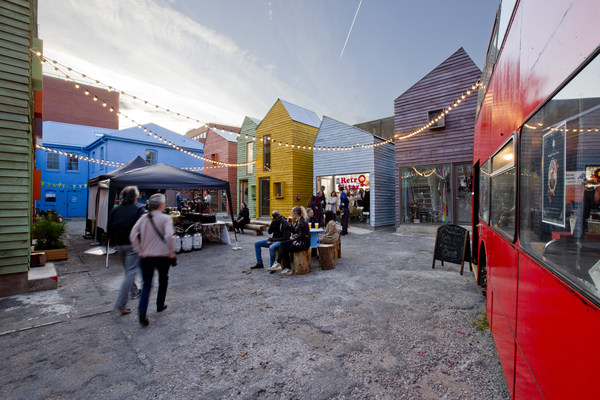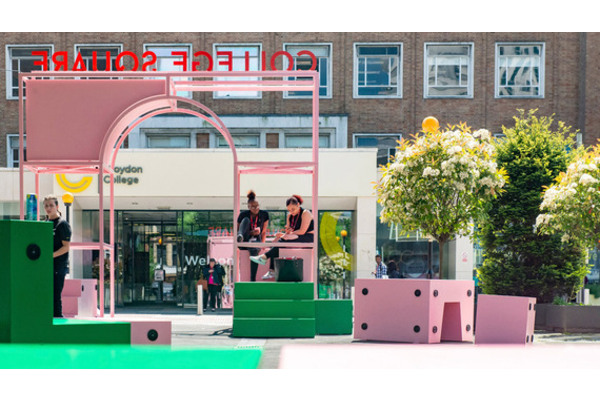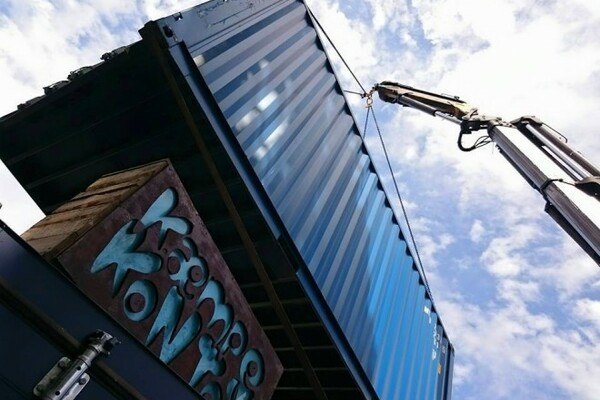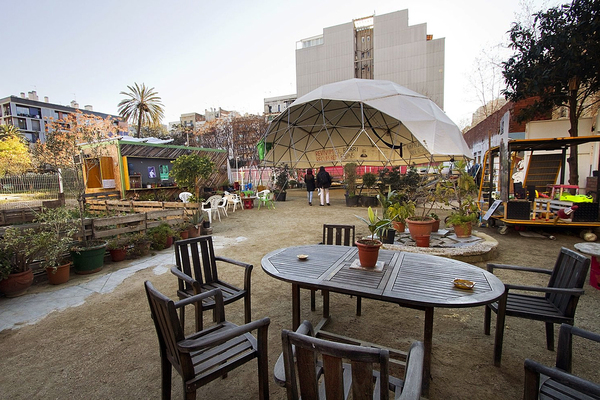Executive summary
Meanwhile Space: Ten Years in Practice is an effort to put forward a timely review of empirical evidence that
Meanwhile Space Community Interest Company (CIC) has accumulated during their ten-year trajectory in enabling and establishing a process for temporary or interim use of vacant spaces in the UK context. The report aims to reflect on the experience of mobilising ‘meanwhile uses’ as a social enterprise and to evaluate the drivers, performance and achieved impact for key stakeholders – tenants, landlords, local communities, local authorities, and operators. To our knowledge, this is the first systematic attempt to characterise UK-based meanwhile use projects by using historical evidence from practice. This is not to suggest that this report is an exhaustive assessment of the field, given the multiple ways in which temporary use manifests on the ground. However, the review benefits from insights coming from a diverse set of spaces and business models that Meanwhile Space has operated, tested and delivered.
The objectives of the Meanwhile Space: Ten Years in Practice report were to:
- Examine the socio-economic context meanwhile uses as illustrated through Meanwhile Space’s locations.
- Characterise meanwhile use practice based on measurable evidence.
- Introduce a process for monitoring impact for key direct stakeholders.
- Develop an understanding of opportunities and challenges based on Meanwhile Space tenants’ experiences.
- Provide insights for achievements and shortcomings, as well as guidance on potential future directions of meanwhile use practice and research.
Technical summary
Three sets of data are examined in the report, collected by Meanwhile Space:
- Information, including numerical data, about Meanwhile Space projects, such as the location and duration of
projects, total business rates’ savings per project, and number of tenants and
employees per space. - Results from direct stakeholders’ surveys, which consisted of online questionnaires addressed at past and
current tenants, and landlords and partners in the period between March 2018 and March 2019. - Indirect stakeholders’ surveys which were distributed at the sites and local areas of example Meanwhile Space projects and were addressed at the local community and the wider public.
According to Meanwhile Space’s archives, a total number of 897 tenants have used their meanwhile spaces.
Locations currently active have hosted 512 tenants as of March 2019. The total number of responses received during the online survey adds up to a survey sample of 78 tenants (8.7% of the population size). Given that there is no prior statistical information on the profile of meanwhile tenants, it is difficult to
evaluate whether the survey sample is representative of the tenant population.
Meanwhile Space’s portfolio of projects includes project delivery, setup and management of properties and/ or consultancy. Survey respondents came from the first two project categories, from 9 different projects, out of 34 in total (excludes consultancy activities) – namely, the survey sample includes experiences from one third of
Meanwhile Space projects with tenant involvement. The location of projects was mainly the metropolitan area of London.
Female representation within the survey sample (53.8%) is significantly higher compared to figures from the Small Business Survey (SBS) 20181 which identify for the UK that 23% of small businesses with no employees was majority-led by women (DBEIS, 2018, p.i). The SBS statistical descriptions represent the ‘small and
medium enterprises’ (SMEs) in the UK non-financial sector and include micro-businesses of 1 to 9 employees.
The profile of SMEs participating in meanwhile use projects is not statistically defined and therefore we do not have an accurate statistical description of the meanwhile tenant population. We also do not have data on the female to male representation in the entirety of Meanwhile Space’s tenant population. The same is the case for ethnic minorities. The reader should take into account these limitations when reviewing the datasets and
interpretations presented in this report.
The author, Dr. Garyfalia Palaiologou was not involved in the data collection process – the analysis of the Meanwhile Space datasets was conducted by the author independently from the data collection process.
Effectively, this report is an attempt to share empirical data on meanwhile use projects collected by one UK
operator, Meanwhile Space, so as to initiate a process for an evidence informed understanding of interim use of vacant assets as a growing practice in the UK.
Download a copy of Meanwhile Space - 10 years in Practice
If you want a hardcopy of the book its available to purchase at £15 (including postage) please email [email protected] to request one.
image credit Jan Kattein Architects





